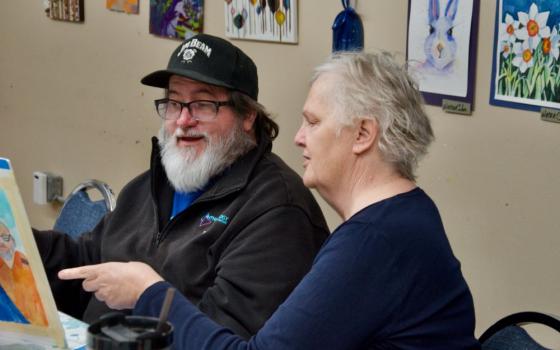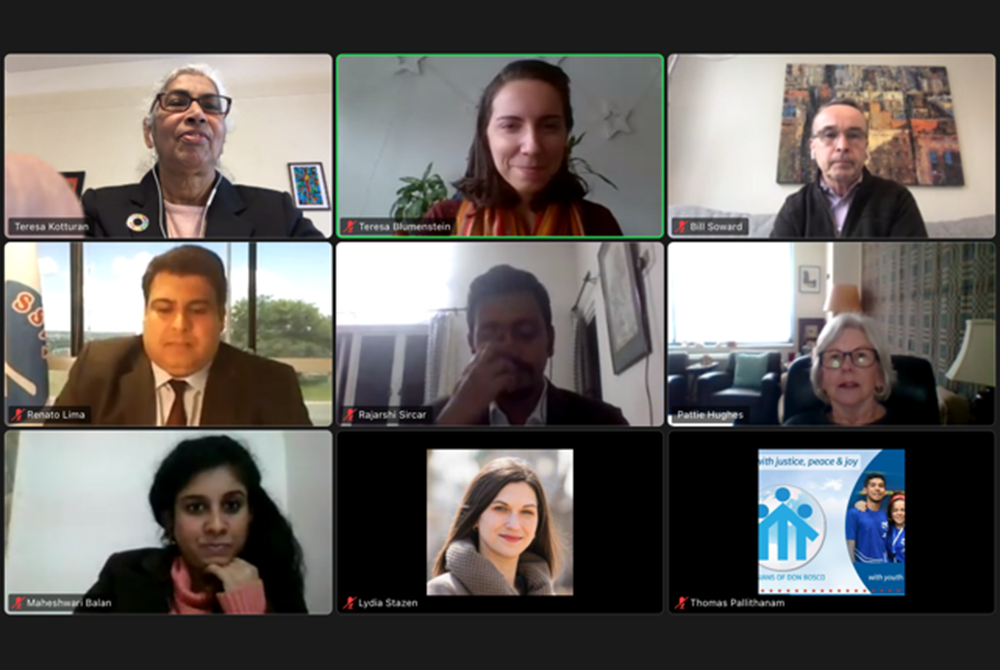
A screenshot of a a Feb. 9 webinar focused on digital technologies to help end homelessness, moderated by Sr. Teresa Kotturan, who represents the Sisters of Charity Federation at the United Nations. (Provided photo)
A global digital divide must be overcome to end ongoing crippling inequalities, say participants in 10 days of meetings at the United Nations that focused on digital technology's role in improving global social development.
Participants attending the Feb. 8-17 meetings of the Commission for Social Development — including Catholic sisters and church representatives, said the COVID-19 pandemic has only spotlighted the digital challenges now facing the world.
"The COVID-19 pandemic has accelerated the pace of digital transformation. Increasingly our lives are dependent on the digital world," Sr. Teresa Kotturan, who represents the Sisters of Charity Federation at the United Nations, said in introductory remarks to a Feb. 9 webinar focused on digital technologies to help end homelessness.
"We are witnessing a digital revolution and transformation — creative and innovative use of technology is providing access to services of every kind to improve the quality of life for many," Kotturan said. "On the other hand, the pandemic has also revealed the widening digital divide, further exasperating existing inequalities."
Quoting figures from the U.N's International Telecommunication Union, Kotturan said that the digital divide "is highlighted by the fact that 93% of the world population live within the proximity of mobile, broadband internet service."
While 93% of the world's population lives in proximity of broadband internet service, only 53.6% access the internet, Kotturan said, citing figures from the U.N's International Telecommunication Union. That leaves 3.6 billion people without internet access — and in low-income countries, only about 19% have access. In the U.S., 30 million people have no broadband internet access, she said.
In Feb. 16 remarks, Archbishop Gabriele Caccia, the apostolic nuncio and permanent observer of the Holy See to the United Nations, noted those disparities as well, and the challenges facing "developing countries, rural areas, and other underserved communities."
"In areas with low population density, the cost of building internet infrastructure is often prohibitive given the relatively few users. Even where access is available, other challenges exist, such as inconsistent electricity," Caccia said, also noting that some cannot afford to pay for internet access. Ultimately, he said, resolving these challenges will require collaboration between governments, internet providers and those seeking to access the internet.
Such inequalities hinder progress to reduce poverty and other social ills, said Argentinian diplomat María del Carmen Squeff, who chaired this year's commission meetings. "We cannot allow a new digital citizenship to be the privilege of the few," she said in closing remarks on Feb. 17.
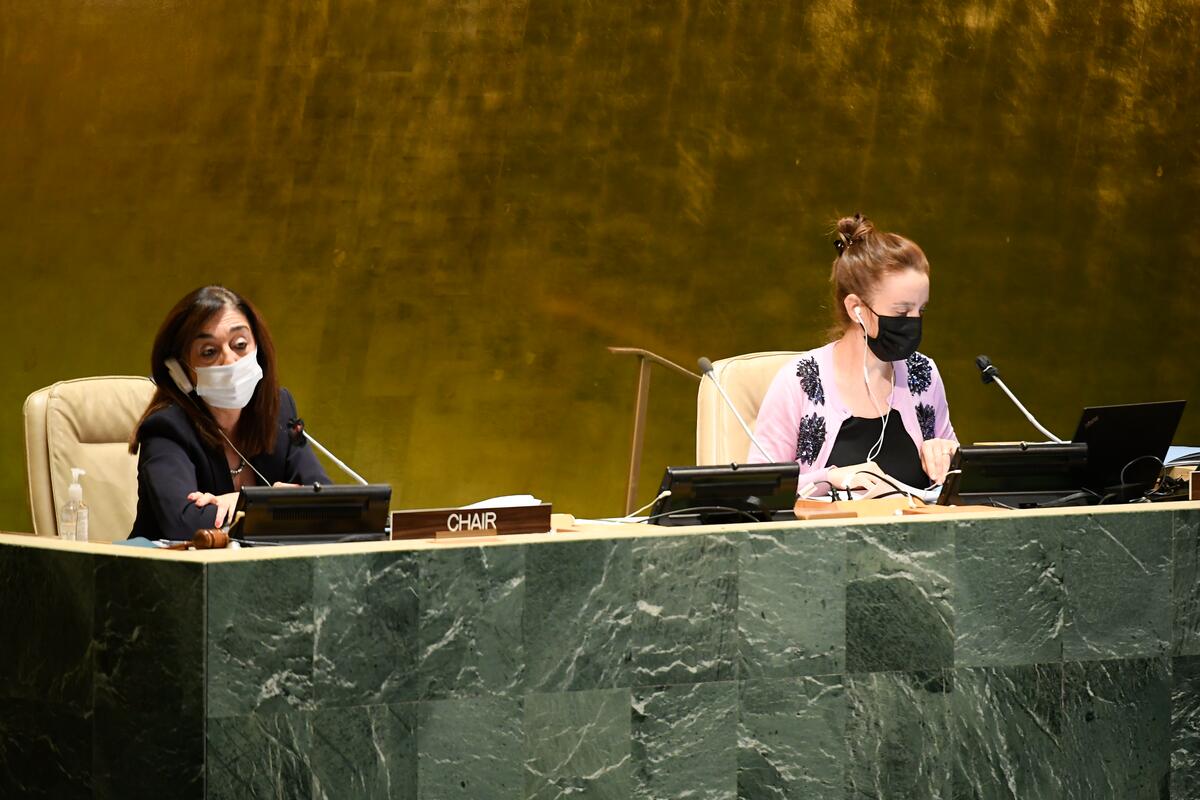
María del Carmen Squeff, left, permanent representative of Argentina to the United Nations, chairs the opening of the 59th Commission for Social Development. (United Nations photo)
In an accompanying statement, the 46-member commission said that digital technologies "must be used as both emergency tools and those that provide opportunities for all the world's people in efforts to create more inclusive, equitable societies."
Among the calls made in a draft resolution that will go on to the U.N.'s Economic and Social Council and then probably to the U.N.'s General Assembly is one encouraging the global body's member states to "seek to achieve universal connectivity to ensure that every person has affordable access to quality broadband Internet by 2030."
While praising that recommendation and the draft resolution in general, several sisters who are longtime participants in commission meetings said that more must be done by national governments to ensure global access to the internet.
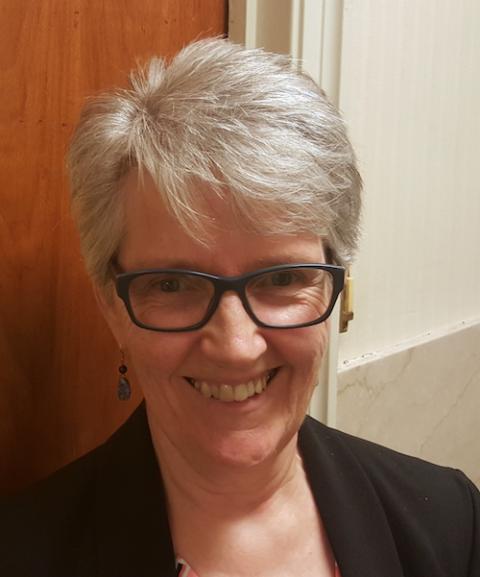
Sr. Winifred Doherty, the U.N. representative of the Congregation of Our Lady of Charity of the Good Shepherd (GSR file photo)
The call for global connectivity is encouraging but at the same time frustrating because it makes no demands on U.N.-member states to actually do anything to help those who do not have internet access, said Sr. Winifred Doherty, who represents the Congregation of Our Lady of Charity of the Good Shepherd at the U.N.
"Am I hopeful it will happen? Well, I live in hope," Doherty told GSR in an interview after the commission meetings. She said if too much control is left to private industry, digital access will remain a dream for many, and that will perpetuate inequalities in areas such as accessing basic social services and education.
"You're nobody if you don't have a digital portfolio," Doherty said of contemporary realities, particularly during the pandemic. Even digitizing basic documents like birth certificates could help millions access social services, like health care, in their respective countries, she noted.
Advertisement
Kotturan agreed. "We need a people-centered approach in order to maximize the benefits of digital technology to foster social inclusion," she said in her remarks. "The U.N. Secretary General [António Guterres] states that, 'Leaving no one behind means leaving no one offline.' "
In a follow-up interview, Kotturan added that without more equitable digital access, achieving the U.N's sustainable development goals — an agenda to reduce global poverty and other social ills by the year 2030 — will be impossible. "Without that access, the most vulnerable people can't enjoy their full human rights," she said.
Education is one basic human right and Caccia noted that the pandemic has illustrated the need for universal digital access. "Even if we have seen that there is no substitute for in-person learning and healthy human interaction, the importance of computer literacy and digital skills has never been clearer," he said in his remarks.
Digital technologies also benefit refugees and others displaced due to conflict, natural disasters and climate events. "Ensuring internet access can significantly contribute to maintaining connections with family and friends abroad, identifying job opportunities, and starting or continuing education," Caccia noted. "For migrants, new digital financial services can help reduce the transaction cost of remittances, a key source of income for millions of families."
At the same time, he said, technology also has a threatening side, including the spread of criminal activity. "Terrorist recruitment, human trafficking and production and distribution of sexual abuse material, including child pornography, are well-known examples of criminal activity aided by and advanced through the digital reality," he said. "To combat these effectively is a necessary and pressing task."
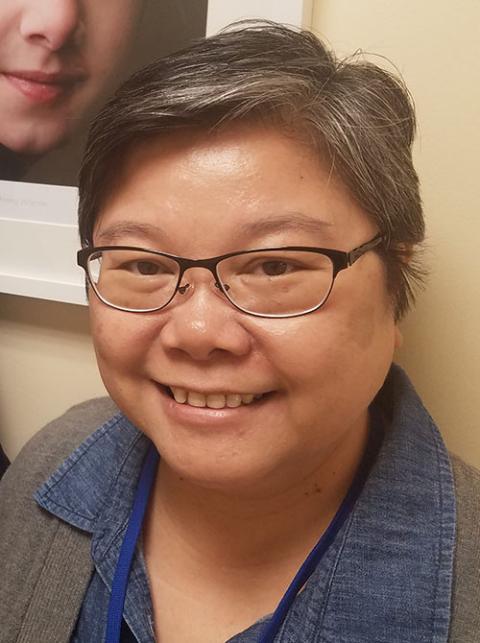
Maryknoll Sr. Marvie Misolas, representative of the Maryknoll Office for Global Concerns at the U.N. (GSR file photo)
Sr. Marvie Misolas represents the Maryknoll Sisters at the United Nations and helped organize a Feb. 15 webinar on the role of digital technologies and the sexual exploitation of children, which was a follow-up to an earlier event held last July.
She shared her U.N. colleagues' concerns about the inequities of digital access and the ways in which technology can be a boon — such as assisting migrants and refugees — but also a threat, as in the sexual exploitation of children.
In the ongoing discussions about technology, Misolas said in an interview, "ethical considerations must be put in place."
How to do that is a difficult and vexing challenge, she acknowledged, though participants in the webinar noted that governments, watchdog groups and the technology industry are working together to eliminate the dangers posed by sexual exploitation on the internet.
John Tanagho, a panel participant at both the recent and July events who represents the International Justice Mission, an anti-trafficking watchdog group, noted that technologies are being developed that can detect exploitative acts. But he also said a cornerstone to ending exploitation is by increased law enforcement and ending impunity for those committing harmful acts.
Misolas said the world is at a crossroads — dependent on technology but increasingly aware of its dangerous and perilous uses. "To me, the question comes down to, 'It is for the common good?' "



